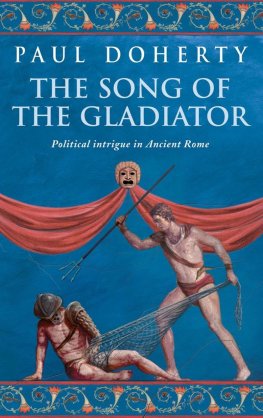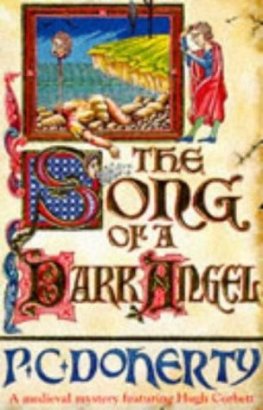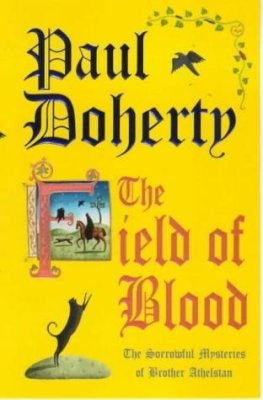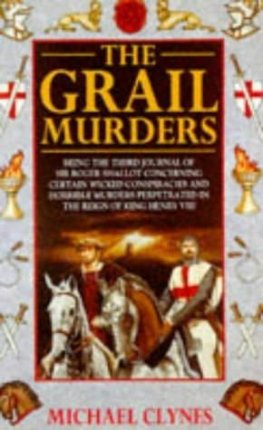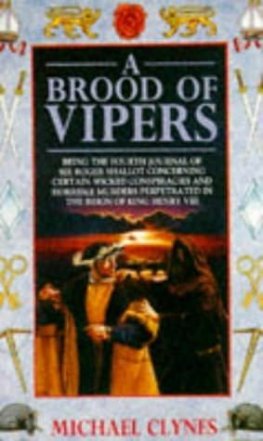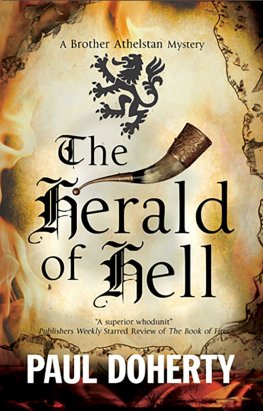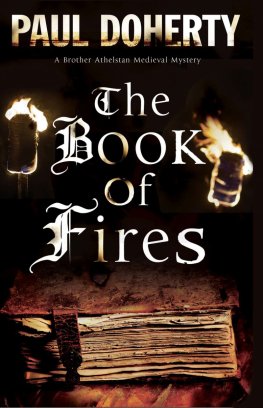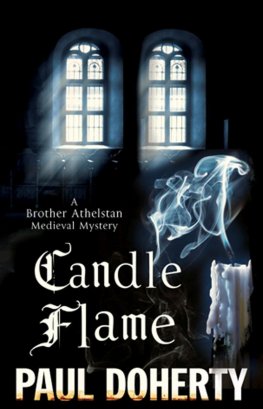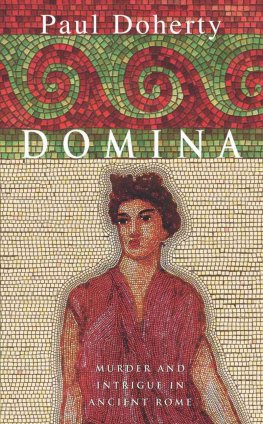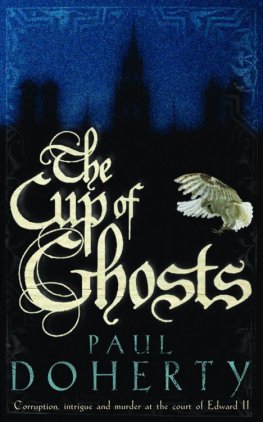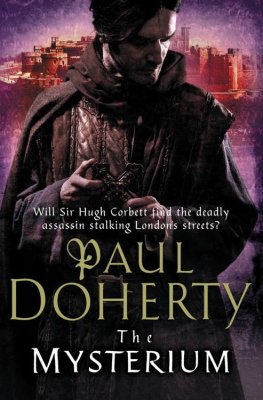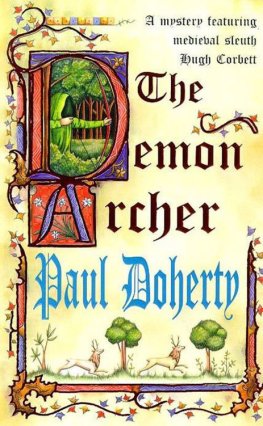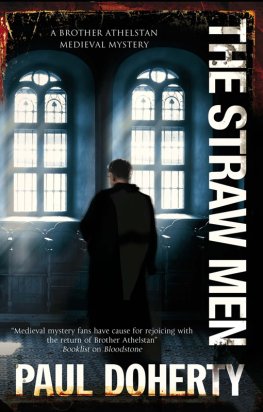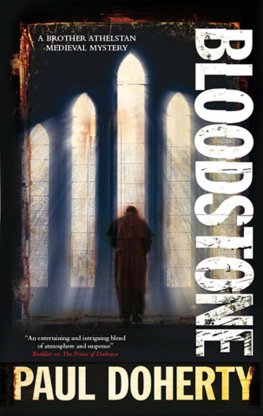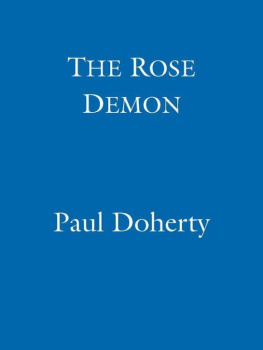Paul Doherty - The Rose Demon
Here you can read online Paul Doherty - The Rose Demon full text of the book (entire story) in english for free. Download pdf and epub, get meaning, cover and reviews about this ebook. genre: Detective and thriller. Description of the work, (preface) as well as reviews are available. Best literature library LitArk.com created for fans of good reading and offers a wide selection of genres:
Romance novel
Science fiction
Adventure
Detective
Science
History
Home and family
Prose
Art
Politics
Computer
Non-fiction
Religion
Business
Children
Humor
Choose a favorite category and find really read worthwhile books. Enjoy immersion in the world of imagination, feel the emotions of the characters or learn something new for yourself, make an fascinating discovery.

- Book:The Rose Demon
- Author:
- Genre:
- Rating:4 / 5
- Favourites:Add to favourites
- Your mark:
- 80
- 1
- 2
- 3
- 4
- 5
The Rose Demon: summary, description and annotation
We offer to read an annotation, description, summary or preface (depends on what the author of the book "The Rose Demon" wrote himself). If you haven't found the necessary information about the book — write in the comments, we will try to find it.
The Rose Demon — read online for free the complete book (whole text) full work
Below is the text of the book, divided by pages. System saving the place of the last page read, allows you to conveniently read the book "The Rose Demon" online for free, without having to search again every time where you left off. Put a bookmark, and you can go to the page where you finished reading at any time.
Font size:
Interval:
Bookmark:
Paul Doherty
The Rose Demon
HISTORICAL NOTE
In 1453 the great Byzantine civilisation was extinguished when the Ottoman Turks broke into Constantinople, killing the Emperor and bringing his empire and what land he ruled firmly under the control of the Ottoman Turks. Despite the help of Venice and the military religious orders such as the Knights Hospitallers, as well as the fighting skills of Western mercenaries, Constantinople ceased to be.
In England such a disaster made little impact as the country was divided between the Houses of York and Lancaster. A bitter civil war raged which, in 1471, culminated in the destruction of the Lancastrian cause, the death of their king, Henry VI, the exile of his queen, Margaret of Anjou, and the execution of most of the Lancastrian commanders. York remained in the ascendant until the Battle of Bosworth in 1485 when Henry Tudor defeated the Yorkist king Richard III. Henry VIIs victory, however, was not complete and, for years afterwards, his reign was plagued by a series of powerful Yorkist pretenders.
In Spain, Aragon and Castile were to be united by the marriage of Ferdinand and Isabella. The successful union of these kingdoms led to the implementation of a much-treasured dream: the removal of the Moors, the capture of their great city of Granada, and the emergence of a Catholic Spain.
In Italy, meanwhile, a Genoese explorer and map-maker, Christopher Columbus, dreamt of sailing across the great Western Ocean to find a safer and more direct route to the Indies. .
THE PROLOGUES
1
The Rosa Mundi,
Its heart is cankered.
Its petals drop like a fallen angel
From the fields of heaven.
Oh day of wrath,
Oh day of mourning!
See fulfilled the prophets warning.
Heaven and earth in ashes burning!
The opening lines of the Dies Irae echoed along the marble naves of the churches. The priests in their gorgeous vestments, shrouded by clouds of incense, lifted their hands and beseeched the Almighty to help against the tide of terror which had broached the massive walls, towers and fortifications of Constantinople. Mohammed II, self-styled Gods Vice-Regent on earth, had brought his fleet across the Golden Horn. Just after dawn, his yellow-coated janissaries had made their final assault. The walls had been breached, the last home of the Caesars was about to fall. Already the purple, imperial banners were retreating deep into the city as cries of desolation rang out along the streets and alleyways of the Emperors city. Soon, the horses of the conquerors would ride in triumph into the palaces of the Byzantine nobles.
The calamity had been foretold. Hideous portents had filled the skies. Satan, like some great bat, his shadowy wings extended, his talons like those of a huge eagle, had been seen hovering over the city. And had not demons appeared in the hippodrome, red-clawed hands turned up towards the sky, whilst sepulchral voices at midnight, sounding like hollow bells, prophesied horror upon horror: Constantinople was about to fall.
In his private chamber at the Blachernae Palace, only a short distance from the fighting, Constantine Palaeologus, the last Roman Emperor, was about to leave and die on the walls of his city. In the antechamber, his housecarls, their long, blond hair falling down to their waists, now rested against marble walls, loosening the straps from their chain mail byrnies. They sipped wine and knew they would not taste it again until they met in the kingdom of God. They too were to die. Each had taken the blood oath. They would fight until their master fell, and beyond. They would never bend the knee to the Ottoman Turk. They were impatient for death and whispered amongst themselves what could occupy their emperor at such a fatal hour. He was closeted behind the ivory-plated doors of his private chamber with the old priest Eutyches and the two Westerners, the Hospitaller knights, Raymond and Otto Grandison. The brothers had come from Rhodes to offer their swords in the Emperors last stand. The housecarls agreed that the Grandisons were sturdy fighters unlike the Western mercenaries, who had fled through the night, seeking shelter and succour from the Venetian fleet waiting so helplessly beyond the harbour.
Inside his privy chamber, Emperor Constantine slouched in his purple, gold-embossed throne. He stared down at the two knights kneeling before him. Their hair was thick with grease, dark faces unshaven, their armour was blood-spattered, their leather leggings stained with sweat. They both leant on their great, two-handed swords whilst between them stood the venerable Eutyches, dressed gorgeously in the full pontifical robes of a Byzantine priest. A gold-encrusted cape hung about Eutyches thin, bent shoulders, clasped by a silver chain at the front. Beneath this, in his white gloved hands, he held a pyx bearing the Sacrament.
I am going to die, the Emperor declared, breaking from his reverie. Before noon I will be dead. I will die like a Roman general, my face to the enemy, my sword in my hands.
Then, Excellency, let us die with you, said the elder of the knights. That is why we entered our order, what we live for. To die for Christ, His Holy Mother and the Christian faith.
Constantine shook his head.
My empire is to fall, he murmured. It will never rise again. This city is twelve hundred years old. He smiled thinly, wiping the dust from his face. Our conquerors will find secrets they are welcome to them but, one they must not discover. I have sworn a great oath, on holy relics, as my father did before me, that, if this city falls, my last act must be to destroy a great evil. He stirred in his chair. That is why you are in Constantinople. You are to help me.
The two Hospitaller knights stared at him. They were young men, their soft faces sunburnt, eyes gleaming with the light of battle. They looked so alike black hair neatly cropped, well-spaced, honest eyes. The Emperor allowed himself another smile. He had chosen well: these men, sworn to celibacy and obedience, would carry out his commands.
Stand up! he ordered.
The knights got to their feet.
Place your hands on the Sacrament!
The knights took off sweat-stained gauntlets. Each placed a hand gently over that of the old priest as he stood, face impassive, eyes closed, murmuring his prayers.
Swear! Constantine insisted. Swear on the Sacrament that you will carry out my last order! Swear that you will do so, whatever the cost!
We swear!
Constantine opened the purple filigree pouch on his war belt and took out a ring on which seven keys hung. The clasp on each was strangely carved and the handle of every key was shaped into a cross, in the centre of which was a small glass reliquary.
These are special keys, the Emperor explained. Each holds the relic of a great saint. He handed them to Sir Raymond. Follow Eutyches! He will take you, by secret passageways, down deep into the bowels of the palace. The way is already lighted. The Emperor paused, his head slightly sideways. Listen! he whispered.
The roar of battle was now not so faint.
I must hurry, the Emperor continued. In the vault the five silver keys will open a chamber. The two golden ones will unlock whatever that chamber contains.
What is it? Sir Otto asked hoarsely.
A casket, the Emperor replied. You are to open it. Once you have done so, do whatever Eutyches tells you to. You have sworn an oath.
The Emperor got to his feet, his chain mail jingling as he walked across to a huge, golden rose painted on the blue marble wall. He pressed the centre and a door swung open. Otto flinched at the cold blast of air which swept into the chamber. Both knights, seasoned warriors, felt a deep sense of fear, blood chilling as if a dagger were being drawn along the napes of their necks. They looked at each other, then back at the Emperor.
Font size:
Interval:
Bookmark:
Similar books «The Rose Demon»
Look at similar books to The Rose Demon. We have selected literature similar in name and meaning in the hope of providing readers with more options to find new, interesting, not yet read works.
Discussion, reviews of the book The Rose Demon and just readers' own opinions. Leave your comments, write what you think about the work, its meaning or the main characters. Specify what exactly you liked and what you didn't like, and why you think so.

